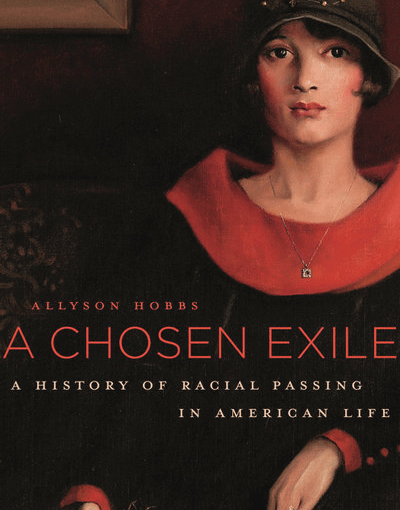Uncovering Hidden Histories: Hobbs Discusses Her Award-Winning Book

Allyson Hobbs’ A Chosen Exile examines previously untold stories of racial passing in America.
On Monday, March 21, Colgate students and faculty gathered in the Persson Auditorium to listen to Assistant Professor of History at Stanford University Allyson Hobbs, who gave a lecture about her book A Chosen Exile: A History of Racial Passing in American Life.
Racial passing occurs when a member of a certain racial group is also accepted as a member of another racial group. In the context of her book and lecture, Hobbs specifically examined the phenomenon of African Americans passing as Caucasian to escape systematic racism in the United States.
“[Passing is fundamentally] a social act, with enormous social consequences,” Hobbs said.
To begin her lecture, Hobbs described her inspiration to document racial passing.
“This project was inspired by a story that my aunt told me about a distant cousin of ours who grew up on the South Side of Chicago in the 1930s,” Hobbs said.
Through pictures and words, Hobbs related this distant cousin’s story. Though her cousin was raised in a predominantly African American neighborhood, she appeared Caucasian. At her mother’s insistence, Hobbs’ cousin moved to California and changed her identity to one of a white woman.
Hobbs recalled how she began to research extremely individualistic stories of racial passing.
“After my aunt told me this story, it haunted me, so I spent 12 years wrestling with this curious phenomenon of passing. Conventional wisdom tells us that a history of passing cannot be written, that those who passed left no trace in the historical record. But I believed that the sources were out there for historians, just waiting to be discovered. So I went into the archives looking for ghosts, hoping to tell their stories,” Hobbs said.
Through telling the history of passing, Hobbs also turned her focus to the Black families left behind.
“Those who were left behind describe the pain and the loss of this act just as keenly as those who passed,” Hobbs said.
Hobbs also pointed out that passing is not an entirely distant phenomenon. She explained, to many students’ surprise, that Adam Clayton Powell, Jr. passed at Colgate for two years as a white student.
“Passing is often represented as a story of gain. By passing as White, particularly during the years of legalized segregation, one could access a range of employment opportunities that would otherwise be restrictive,” Hobbs said.
However, her thesis hinges on passing as a story of loss.
“To write a history of passing is to write a history of loss,” Hobbs said. “The goal of my work is to explore not only what was gained by passing as White, but also what was lost by walking away from a Black racial identity.”
Assistant Professor of History Daniel Bouk was instrumental in bringing Hobbs to speak at Colgate.
“Professor Heather Roller and I dreamed up a plan of inviting Professor Hobbs out to campus after we decided to assign her book to both our introductory history workshop classes and our senior honors seminar. We were thrilled when Hobbs said yes and when we won the support of the History Department, the Africana and Latin American Studies Program and the Sio Chair in Diversity in Community, which made the visit possible,” Bouk said.
Bouk provided some background as to why he made the decision to assign A Chosen Exile to Colgate students.
“We assigned Hobbs’s book because we thought it was a model for writing cultural history – it is beautifully crafted and draws on sources in very clear ways to tell its story. We hoped to inspire our history students to commit themselves in similar ways to telling the stories of people who are often lost to history,” Bouk said.
Bouk also explained his hope for Colgate students.
“While Hobbs’s book is about passing, it is also a detailed analysis of the changing experience of race and racism for African Americans. It demonstrates the ways that ideas about race and the experience of racism have changed over time. And if such ideas have changed in the past, they might change again. I hope that might be an encouraging thought for the many brave students on our campus … who participate in our nation’s struggle toward real equality and who challenge the racism that lives in our everyday ways of thinking,” Bouk said.
At one point during the lecture, Hobbs asked the audience to think about a time when their identity was mistaken, challenging those in attendance to think beyond binary definitions of identity. She called on sophomore Jessica Blau to provide an explanation as to why identity is often misperceived.
“I feel like, when we go through daily life, we always want to categorize people, and we don’t allow people to be ambiguous, or not categorized in a certain way,” Blau said.






